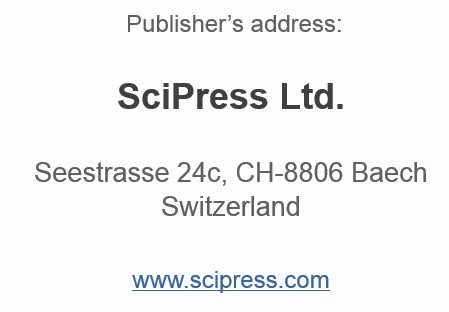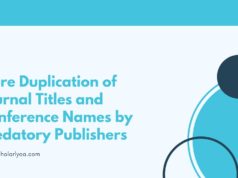
The Google Scholar profile for Ştefan Vlăduţescu at Romania’s University of Craiova indicates that his publications have been cited 1,709 times. However, most of the citations to his works appear in dozens of articles published in three predatory, open-access, European journals.
Most of the citations to Vlăduţescu’s works appear in the three journals published by SciPress Ltd, a publisher that purports to be based in Baech, Switzerland. The publisher also uses the name Scientific Publishing House. It publishes these three journals:
International Letters of Social and Humanistic Sciences
International Letters of Chemistry, Physics and Astronomy
International Letters of Natural Sciences
Although the publisher claims a Swiss headquarters location, the URLs for all three journals end in .pl — the country code top-level domain for Poland.
The three journals are suspicious for many reasons. I’ve added both the publisher and the journals to my lists. Here are some of the reasons:
1. The journals all have a bunch of articles already published in 2015. The International Letters of Natural Sciences, for example, has 32 articles already published in 2015 in four volumes (really issues). The journals published massive amounts of articles in 2014. For example, the International Letters of Social and Humanistic Sciences published 30 issues, with about 250 articles in 2014. Many of the authors are from Iran.
2. Many of the published articles are complete nonsense. For example, one of Vlăduţescu’s articles in the International Letters of Social and Humanistic Sciences is entitled “Persuasion and the hygiene of communication.” The article has fewer than five pages of text, and the references section at the end has 72 entries. There are only 19 in-text citations however. Vlăduţescu appears as the author or as a co-author of 11 of the 72 works cited at the end.
Note that this article was published in July 2014 (“Received 03 July; accepted 10 July 2014”), and it already (January, 2015) has been cited 12 times.
Many of the bibliographical references in the articles are contrived or incomplete:
It is possible that this publisher was set up only for the purpose of gaming Google Scholar metrics. In fact, pretty much everything about the publisher seems fake.
Academic evaluation for promotion and tenure at the University of Craiova is based partly on the number of citations to one’s published works. One possible scenario is that SciPress Ltd is a compromised predatory publisher that accommodates authors needing quick and easy citations to their work, citations recorded in Google Scholar, and citations that are used to calculate one’s h-index.
More broadly, this scam reveals how one can use predatory publishers to game Google Scholar. You find an easy, predatory journal that Google Scholar indexes, write a paper that includes a long bibliography at the end, and include 10-12 of your own works in the bibliography. Few, if any, predatory publishers check to verify whether bibliographies and in-text citations match.
Then you pay to publish the article in the predatory journal. The references at the end of the article list many more articles and books than are actually cited in the paper, and your own 10-12 works are scattered among them. Google Scholar automatically counts all the references as citations, recording them in its central index. Your h-index and citation count then increase in Google Scholar.
Update, 2015-01-21: Vlăduţescu’s Google Scholar account has been deleted. After this blog post was published, his number of citations changed from 1,711 to 150.
Appendix:
A selection of suspicious articles published by SciPress Ltd.

















